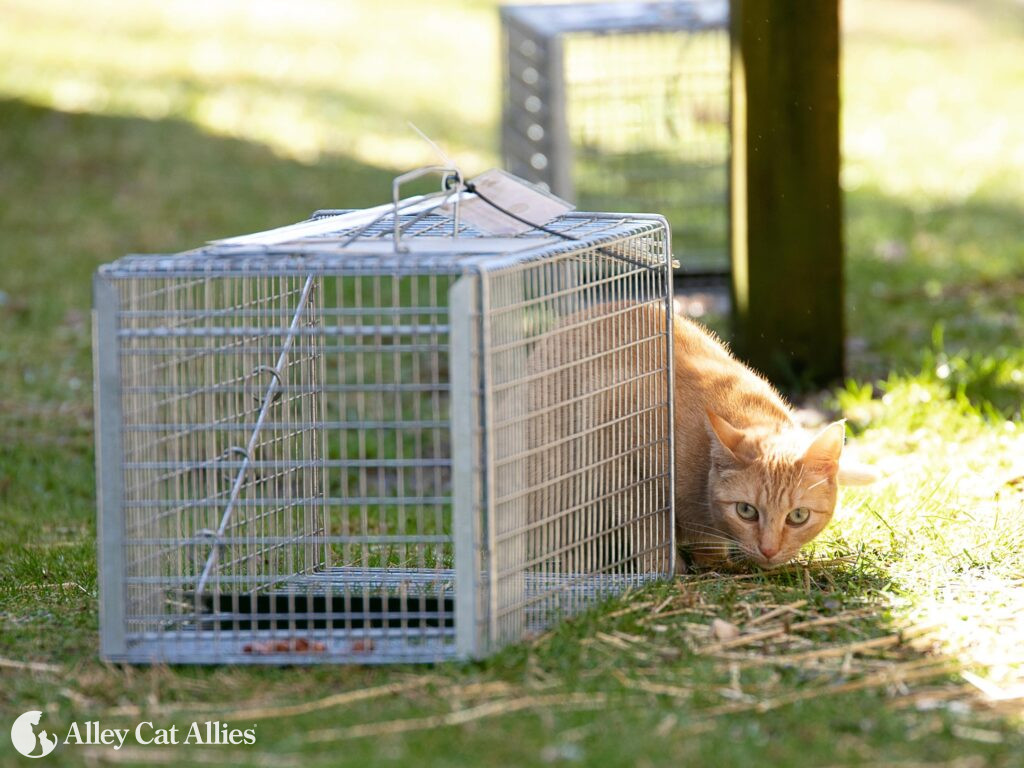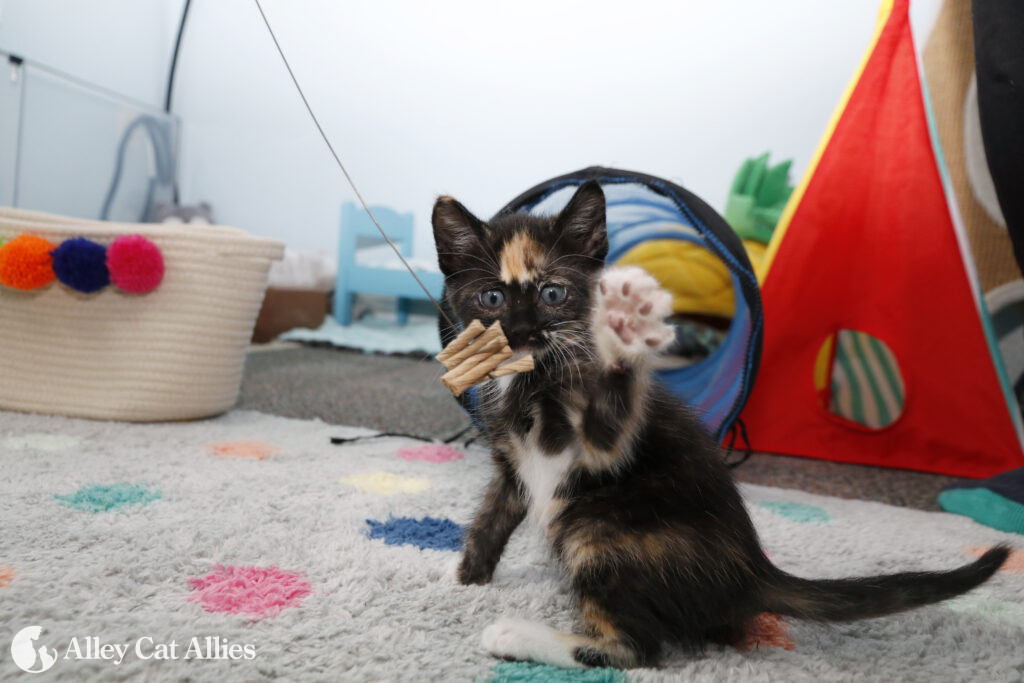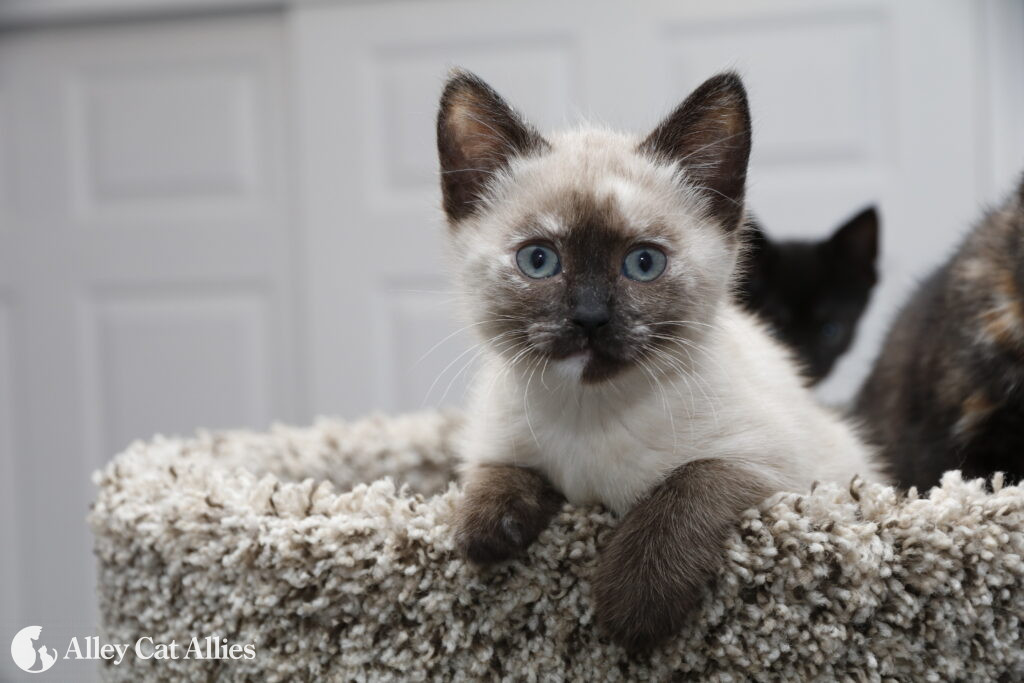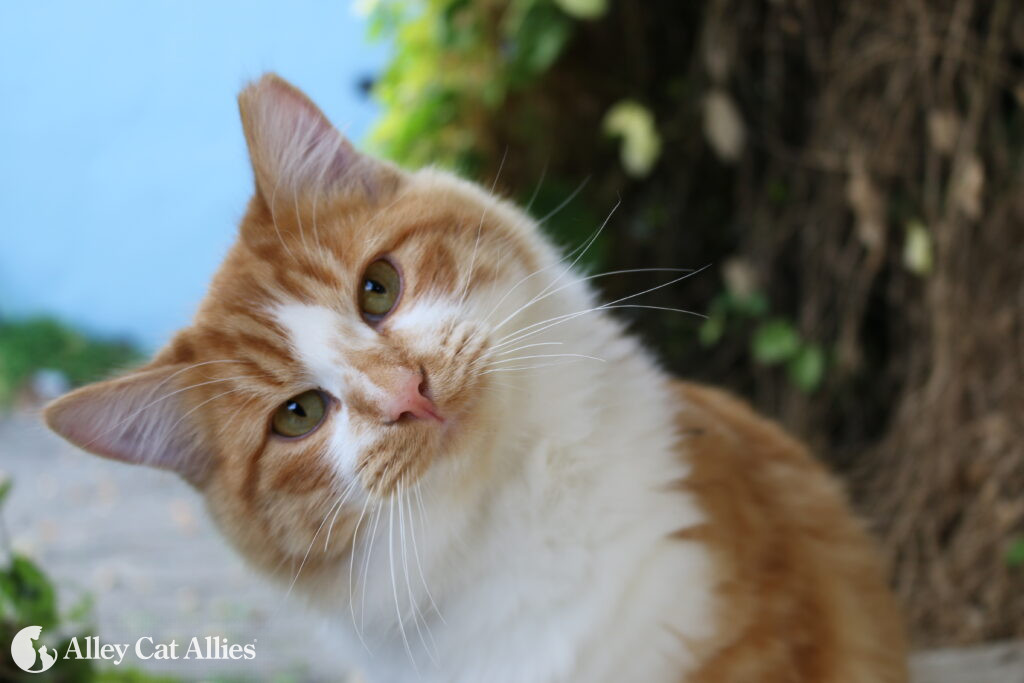May is Mental Health Awareness Month! For those of us with cats in our lives, we know well the power of a warm, purring ball of fur curled up in your lap to reduce stress and improve mental wellbeing.
It isn’t just our cat person bias, either. Cats are increasingly proving to excel as therapy animals for people who face depression, anxiety, PTSD, and many other health and developmental conditions. They are chosen to visit retirement homes, hospitals, schools, and more to bring their unique charm, warmth, and a calming sense of normalcy to all who encounter them.
Plus, people caring for outdoor cats know how enjoyable and peaceful it can be to interact with and observe community cats in their daily lives with their feline families.
So this month, let’s honor everything cats do to improve our mental health…by doing all we can to improve THEIR mental, emotional, and physical wellbeing!
Here are 5 ways you can improve cats’ mental health:
1. Spay or Neuter All Cats
Spay and neuter is the kindest and most important thing you can do for a cat! Spay and neuter, especially at an early age, removes the stresses of mating, pregnancy, and birth from cats’ lives forever. Plus, it can protect them from certain kinds of reproductive cancers and other diseases!
For community cats, spay and neuter through a Trap-Neuter-Return (TNR) program not only provides all the benefits above, but helps ensure they are not impounded in a shelter. Shelters are incredibly stressful environments that take a toll on every cat’s mental health, but especially for community cats, who are generally not socialized to people. Additionally, unadoptable community cats are still likely to be killed in the many shelters that still lack humane policies and programs.
Cat mental health rule #1 is spay and neuter, ASAP!
2. Enrich Your Cat’s Everyday Experience
If there is something many of us learned in recent years, it’s that spending a lot of time inside can lead to a whole lot of boredom and ennui. Let’s make sure our indoor cats have plenty of activities and the right environment to challenge their minds and tap into their instincts!
Enrichment not only stimulates a cat mentally, but also has great physical benefits—staving off obesity and other health risks.
Invest in or create your own food or treat puzzle for cats to solve. Make sure cats have plenty of toys to run, pounce and chase and consider some cat grass for them to chew on. To give them a taste of the outdoors, try playing nature videos on a tablet or TV. To go even further, build a shelf or place a cat tree near a window so the cats can see out. If you really want to take it to the next level, you can even build a catio!
For community cats, building an outdoor shelter is a great way to ensure they have a safe, comfortable place to rest. You can also customize their outdoor home to give them enriching ways to play and hide! We have some ideas you can try here.
3. Microchip Every Cat
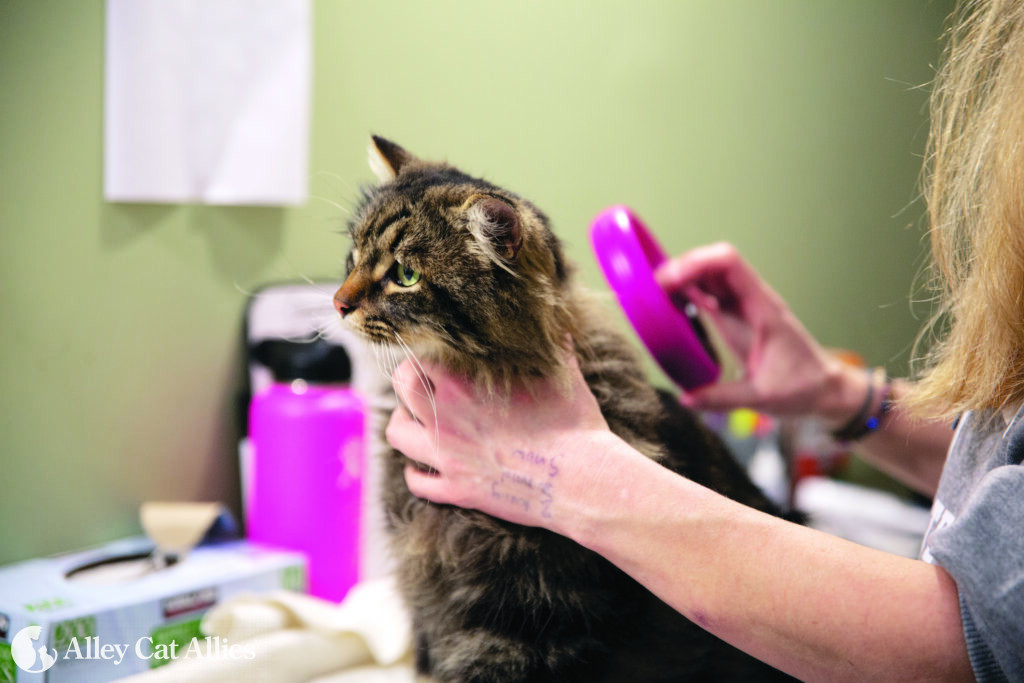
As we said above, animal shelters are incredibly stressful environments for cats, from cramped living spaces to the unfamiliar and overwhelming sights, sounds, and smells. It’s important to make every effort to keep cats out of shelters and with the families who love them—human or feline.
That’s why MICROCHIPPING is so critical! This tiny technology is the size of a grain of rice but has the power to reunite a cat with her family—and save her life! Microchipping our cats and registering the chip with our information is the best way to protect a cat should she ever be lost or picked up by animal control. A quick scan and she’s on her way home!
Yes, community cats can also be microchipped as part of a TNR program! Register the chip with your information as their caregiver or with the information of the TNR group or rescue.
Protecting physical health—check. Protecting the emotional and mental health of cats and their families—double check!
4. Protect Cats from Declawing
Since 1990, Alley Cat Allies has advocated to ban cat declawing all around the nation and the world and shared the truth of what this cruel procedure really entails. We’ve rallied advocates to support the successful bans on declawing in New York, Maryland, and cities across the country—but there is still far more work to do.
The truth is that declawing is far from a nail trim. It is the surgical amputation of the last joints of a cat’s toes and is virtually always nontherapeutic, meaning it has no medical benefit. In fact, declawing can cause permanent physical and mental harm to cats.
The pain and discomfort of the procedure inhibits many of cats’ natural behaviors like scratching and climbing. Without their claws, cats can also feel unsafe and experience issues with walking and balancing. Declawed cats are often in so much pain that they avoid the litter box or bite to defend themselves. These are two of the most common reasons cats are taken to animal shelters, where the majority will be killed.
To protect cats mentally and physically, declawing must come to an end. Join us to advocate for worldwide declaw bans, and to defend those that are under attack. When we learn that a declaw ban bill is on the table, we share how you can take action in support in our Action Center.
5. Learn How to “Speak Cat”
If we want to give back all the mental and emotional support cats give us, the best way to do so is to understand the “language” of cats! Cats have unique ways of communicating how they feel and how their day is going. Some of those tells can only be truly understood by other cats, but there are plenty of signs we humans can look out for!
Not only can a crash course in cat communication help you meet the mental and emotional health needs of your cat, you can also catch physical problems early when you’re on the lookout for changes from their normal behavior. Connecting with a cat on her terms is like speaking her love language!
Our Cat Behavior Webinar series and our Visual Guide to Cat Body Language will give you some valuable insight into how to “speak cat.” You can also learn the unique ways cats interact with us in our in-depth Cat Socialization Continuum Guide.



